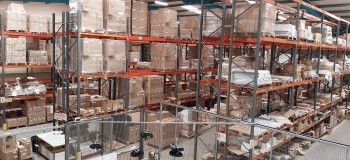12/06/2025
Insights
Capital Gains Tax (CGT) is a tax you may have to pay when you sell business assets. If you sell the assets of a sole trader or business partnership, or sell or close a limited company, you may have to pay Capital Gains Tax on your profits.
In this post, we’ll explain when you have to pay CGT when selling business assets, how much you have to pay, and the relief that’s available to reduce the effective rate.
How does Capital Gains Tax work?
Capital Gains Tax is a tax on the profit you make when selling a business asset. An asset can be anything your business owns, including:
- Property and land
- Equipment, machinery and vehicles
- Intangible assets such as patents, websites and copyrights
- Shares
For example, if your business has a commercial premises it no longer needs, let’s say a shop, you may decide to sell it. If you bought the shop for £200,000 but sell it for £250,000, you will have to pay CGT on the £50,000 profit.
Who pays Capital Gains Tax on asset sales?
If you operate as a sole trader or a business partnership and sell an asset at a profit, you will be liable for Capital Gains Tax.
Limited companies pay Corporation Tax rather than CGT on the profit they make when selling assets in the normal course of business. However, company directors and shareholders may be liable for CGT when they sell a business as a going concern, sell shares in the company or close the business using a solvent liquidation procedure.
In the case of liquidation, the assets are liquidated (sold) and the company is closed. The owners must then pay CGT on the profits they receive. If you dissolve rather than liquidate a limited company, you pay CGT on the first £25,000 of profit and Income Tax on the rest.
When does Capital Gains Tax apply?
Capital Gains Tax applies to the profit you make when selling an asset, but it can also apply to assets that:
- You give away to someone other than a spouse, civil partner or charity
- You sell for less than they’re worth
- You trade for something else
- Were owned by a limited company but you transfer to yourself
If you trade, transfer or give away an asset, you’ll need an accurate market value for the asset so you can calculate the capital gain. A professional asset valuation service will give you a valuation you can use for reporting purposes.
What rate of Capital Gains Tax do you pay on asset sales?
The rate of Capital Gains Tax you pay on asset sales will depend on your Income Tax band. Every taxpayer has a tax-free allowance of £3,000, so you will not pay CGT on anything under that amount. After that:
- Basic-rate taxpayers pay 18% CGT when selling business assets.
- Higher and advanced-rate taxpayers pay 24% CGT on chargeable gains.
It’s also worth pointing out that your capital gain when selling a business asset counts towards your taxable income for the year. So, it could be that the profit when selling an asset pushes you over the basic rate threshold. You’ll need to think about that when calculating how much you owe.
Do you get Captial Gains Tax relief on asset sales?
If you sell a business asset at a profit, the good news is that you may be eligible to claim Business Asset Disposal Relief. It reduces the rate of Capital Gains Tax to 14% for basic, higher and advanced-rate taxpayers for asset sales in the current year (2025/26).
Sole traders and business partners can claim Business Asset Disposal Relief (BADR) if they have owned the business for at least two years. Limited company directors and shareholders may also be eligible for BADR when they sell shares in their company, sell the business in its entirety or close it via a solvent liquidation. However, they cannot claim BADR on the profit from asset sales if they dissolve it.
How do I calculate the Capital Gains Tax on asset sales?
HMRC will not send you a Capital Gains Tax bill. Instead, you must calculate and report how much you owe through your Self Assessment tax return or by using HMRC’s real-time Capital Gains Tax service.
You can calculate your chargeable gain by subtracting how much you paid for the asset from the amount you received when selling it. You can then deduct your £3,000 tax-free allowance from that amount, along with other costs, including:
- Fees relating to the purchase, valuation, marketing and sale of the asset
- The cost of improvements to the asset (not including maintenance and repairs)
- Any Stamp Duty or VAT you paid when buying it
You must also keep records relating to the purchase and sale of the asset, including invoices, bills, receipts and copies of valuations.
You can claim Business Asset Disposal Relief on your asset sale either through your Self Assessment tax return or by completing Section A of the Business Asset Disposal Relief help sheet.
Expert assistance when valuing or selling business assets
At Eddisons Asset Auctions, our professional asset sales and valuation teams have experience across various sectors and can help you obtain the best price for your assets. We can also advise you on CGT and Business Asset Disposal Relief. Please get in touch for more information or to arrange a free asset appraisal.
Get in touch with the BTG Eddisons Asset Sales team
Please contact us for more details and information











